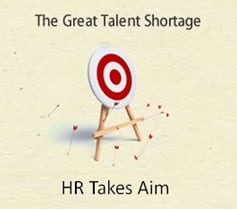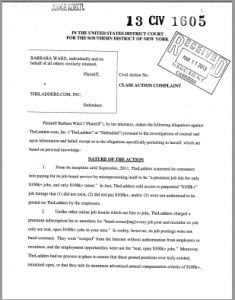In the June 4, 2013 Ask The Headhunter Newsletter, a reader complains about the nagging fear that “the system” will blow up in his face:
I follow all the proper steps throughout my job search, and inevitably I hit a snag that I don’t expect. Getting a job is portrayed as this system everybody follows — employers, job hunters, personnel people, recruiters. But the truth is, even if I do what I’m supposed to do, it just blows up in my face.
I do my part, but employers drop the ball. It seems the salary range fits me, but then I find out it doesn’t. I’m ready to answer all the questions they could possibly ask about the job, and they throw me some stupid curveball! At the end of the interview, they promise an answer next week, but next month they’re still not returning my calls.
No matter how prepared I think I am, there’s this nagging fear that around the next corner is yet another surprise that’s going to blow up in my face. How is anyone supposed to use this system to get a job?
Nick’s Reply
I’ve been burning the midnight oil, working on Fearless Job Hunting, a brand new set of 9 PDF books — the very best myth-busting answers from 12 years’ worth of ATH newsletters. But it’s not just reprints of Q&As.
I’ve re-written, edited, enhanced, and beefed up each Q&A. I’ve added sidebars, articles, and extra examples. I’ve created How to Say It tips. Each book delivers my very best insight and advice on the 9 toughest topics you keep asking about. So let’s get on with this week’s Q&A — and then I’ll explain how Fearless Job Hunting will help you ovecome the daunting obstacles that stop other job hunters dead in their tracks.
I’ve been saving your question for this special edition of the newsletter, because there’s no simple answer to it. The solution starts with an attitude and a strategy for landing the job you want — but it’s not in this week’s newsletter. Please click here for my advice about How to start a job search.
What you will find is a sample section from one of my 9 new PDF books in the Fearless Job Hunting series — Book One: Jump-Start Your Job Search. I hope this sample — How to start a job search — helps you orient your job search so you can stop fearing those curveballs.
Fearless Job Hunting™
I’ve published almost 500 editions of the Ask The Headhunter Newsletter, and I get lots of requests for reprints of old editions about the toughest job hunting obstacles.
My goal with these 9 new PDF books is to make you a fearless job hunter — I’d like to give you an edge, and help you anticipate and overcome the intimidating roadblocks when you’re trying to land a job, so you can stand out as the most profitable hire. (Here’s a list of the titles of each of the 9 new books.)
The question in today’s newsletter merely highlights what troubles job hunters: The broken-down employment system that every day fails employers and job hunters alike.
Success in job hunting isn’t about chasing job postings, sending resumes, and filling out endless online application forms. If any of it worked, you’d have the job you want. It’s not a step-by-step “process” for landing a job. There is no such process that works! If you’ve been participating on Ask The Headhunter, you know exactly what I mean, because it’s what we discuss every week!
In the real world, “the steps” lead to failure when you encounter daunting obstacles — the inevitable obstructions that trip you up. Either you know what to do to overcome them, or you lose.
The 9 Fearless Job Hunting books help you deal head-on with what drives you crazy. They deliver hard-core answers to the in-your-face questions no one else dares to address. Success in job hunting is about knowing what to do when you hit the wall:
A personnel manager rejects you.
Should you walk away? (Book Four)You’re unemployed.
How do you explain it? (Book One)A friend gives you a contact.
How do you make it pay off? (Book Three)An employer wants your salary history.
How do you say NO to protect your ability to negotiate? (Book Seven)It’s between you and Candidate #1.
How do you show that you’re the more profitable hire? (Book Six)You received an offer, but a better one is pending. The first employer wants an answer now.
How do you keep your options open? (Book Nine)The interview went well, but they’re not calling back.
What now? (Book Eight)
How you cope with these obstacles will make or break your job search, no matter how good your resume is, how clever your interview answers are, or how many jobs you’ve applied for. Learn how to be more assertive and how to maintain control in today’s insane job market.
Be fearless. Dive into your job search armed with myth-busting methods to deal with the most daunting obstacles. Get the Ask The Headhunter edge, and say hello to total control over your job search.
Think about the handful of “hit the wall” challenges I’ve listed above. Then please share your experiences: How have you dealt with one or more of them? Let’s compare your methods with some of the tips I’ll discuss from the 9 new Fearless Job Hunting books. And don’t miss the sample section of Jump-Start Your Job Search!
: :













 When it seemed job hunters doubted the database, TheLadders’ chieftain, Marc Cenedella, came up with a claim even stupider than that: TheLadders had experts checking over very single job to make sure they’re always $100K+.
When it seemed job hunters doubted the database, TheLadders’ chieftain, Marc Cenedella, came up with a claim even stupider than that: TheLadders had experts checking over very single job to make sure they’re always $100K+.